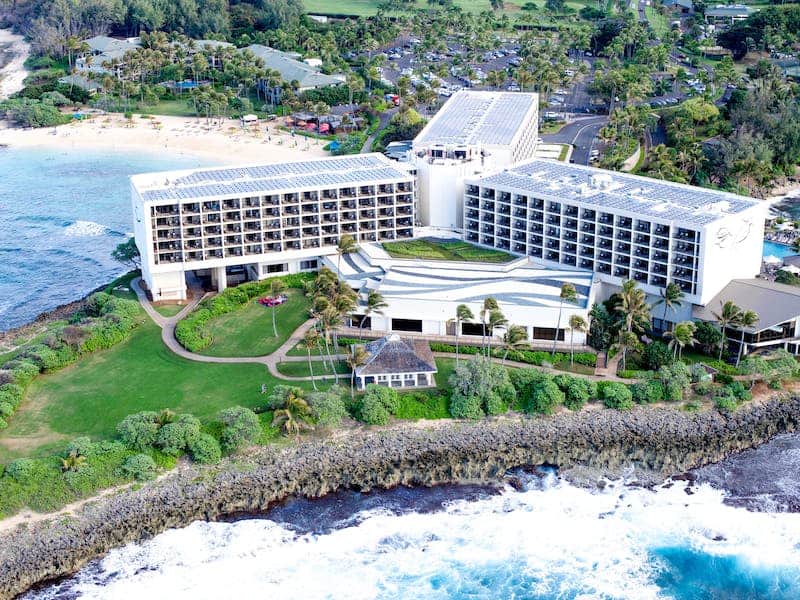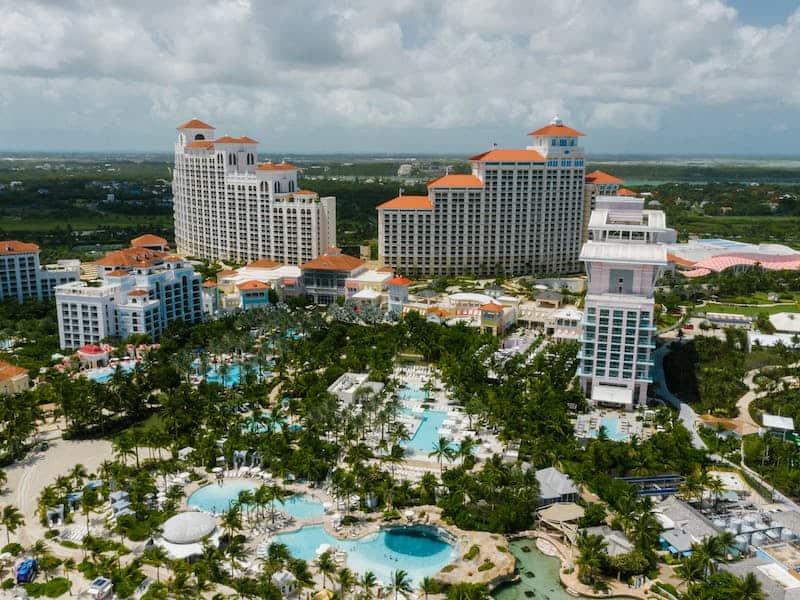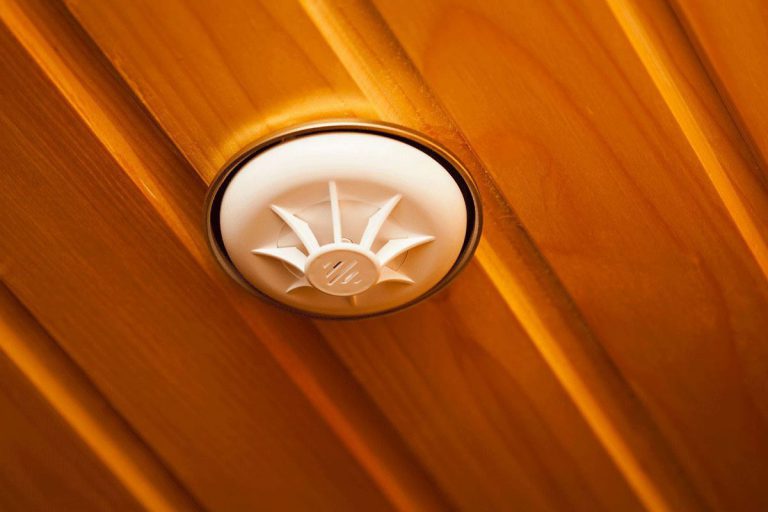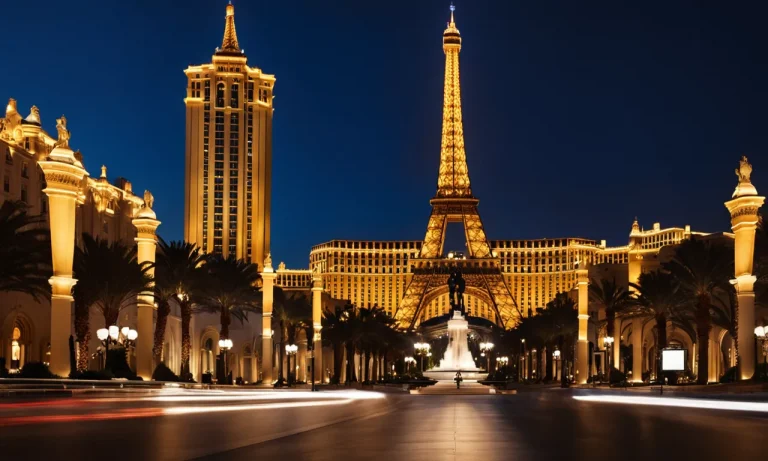Are you planning to open a hotel but not sure about the costs involved? In this article, we will give you a comprehensive guide on how much it costs to open a hotel.
If you’re short on time, here’s a quick answer to your question: It can cost anywhere between $500,000 to $25 million depending on the type, size, location, and amenities of the hotel.
But there are many factors that contribute to the cost of opening a hotel, and we will cover all of them in detail in the following sections.
Factors that Affect the Cost of Opening a Hotel
Opening a hotel requires a significant amount of capital, and the cost can vary depending on several factors. It is worth mentioning that the cost of opening a hotel can range from a few hundred thousand to several million dollars. Here are some of the key factors that affect the cost of opening a hotel:
- Type of hotel: The type of hotel you choose to open will have a significant impact on the cost. For example, a luxury hotel will require a higher investment than a budget hotel. The cost will also depend on the number of rooms and the level of service offered to guests.
- Location of the hotel: The location of the hotel is another crucial factor that affects the cost. Hotels located in prime locations such as city centers or tourist destinations will generally require a higher investment than those in less popular areas.
- Size of the hotel: The size of the hotel is directly proportional to the cost of opening it. The larger the hotel, the more rooms, facilities, and staff required, resulting in a higher investment.
- Amenities and facilities: The amenities and facilities offered by the hotel will also impact the cost of opening it. For example, a hotel with a spa, pool, and restaurant will require a higher initial investment than one without these facilities.
- Target market: The target market of the hotel is another factor that affects the cost. Hotels targeting luxury travelers will require a higher investment than those targeting budget travelers.
It is important to keep in mind that these factors are interrelated, and a change in one factor will affect the others.
For example, a luxury hotel located in a prime location with top-notch facilities and amenities will require a higher investment than a budget hotel with limited facilities and located in a less popular area.
On the other hand, there are some ways to reduce the cost of opening a hotel.
For instance, choosing a location outside of a city center or tourist destination, reducing the number of amenities offered, or targeting budget travelers can help reduce the initial investment. However, it is essential to remember that reducing the cost may also impact the quality of the hotel and limit its potential for success.
According to a recent study by HVS, the average cost of opening a hotel in Europe ranges from EUR 13,000 to EUR 25,000 per room. The study also found that luxury hotels in prime locations can cost up to EUR 70,000 per room to open, while budget hotels in less popular areas can cost as little as EUR 6,000 per room.
| Type of Hotel | Location | Size | Amenities | Target Market |
|---|---|---|---|---|
| Luxury | Prime location | Large | High-end facilities | Wealthy travelers |
| Budget | Less popular area | Small to medium | Basic facilities | Budget travelers |

Cost Breakdown of Opening a Hotel
Opening a hotel comes with a variety of expenses that need to be taken into account. The cost breakdown of opening a hotel includes:
- Land Acquisition: This is the cost of acquiring a piece of land to build the hotel. The cost of the land will depend on the location and size of the property. According to Realtor.com, the average cost of land in the United States is $3,020 per acre.
- Construction Costs: This includes the cost of building the hotel, including materials, labor, and contractor fees. According to Building Journal, the average cost per room for a hotel in the United States is $318,000.
- Equipment and Furniture: This includes the cost of purchasing equipment and furniture for the hotel, such as beds, linens, towels, kitchen appliances, and office equipment. The cost will depend on the size of the hotel and the quality of the equipment and furniture.
- Licenses and Permits: This includes the cost of obtaining licenses and permits to operate the hotel, such as a business license, health department permit, and liquor license. The cost will depend on the location and type of hotel.
- Marketing and Advertising: This includes the cost of marketing and advertising the hotel to potential guests. This can include online advertising, print advertising, and social media marketing. According to Statista, the average cost of advertising a hotel is $2,000 to $10,000 per month.
- Operational Expenses: This includes the ongoing expenses of operating the hotel, such as employee salaries, utilities, insurance, and maintenance. According to HVS, the average cost per available room (PAR) for a hotel in the United States is $60.10.
- Contingency Funds: It is worth mentioning that unexpected expenses can arise during the process of opening a hotel. It is important to have a contingency fund in place to cover any unforeseen costs.
Types of Hotels and Their Costs
When it comes to opening a hotel, one of the first things to consider is the type of hotel you want to open. Each type of hotel has its own target market, amenities, and cost structure. Some of the most common types of hotels include:
| Type of Hotel | Target Market | Average Cost to Open |
|---|---|---|
| Budget Hotels | Travelers on a tight budget | $500,000 to $1.5 million |
| Mid-scale Hotels | Business travelers and families | $2 to $4 million |
| Luxury Hotels | High-end travelers and business executives | $5 to $25 million |
| Boutique Hotels | Travelers looking for a unique experience | $1 to $10 million |
| Resorts | Vacationers looking for a full-service experience | $10 to $100 million |
| Extended-stay Hotels | Long-term travelers and business professionals | $2 to $10 million |
It is worth mentioning that these costs are just estimates and can vary depending on factors such as location, size, and amenities. For example, a luxury hotel in a prime location may cost more to open than a budget hotel in a less desirable area.
When it comes to budget hotels, one popular chain is Motel 6. They are known for their affordable rates and simple amenities. On the other hand, luxury hotels such as The Ritz-Carlton or Four Seasons are known for their high-end amenities and exceptional service.
Keep in mind that opening a hotel is a complex process that involves many different factors. It is crucial to do thorough research and create a detailed business plan before investing any money. Unfortunately, many hotels fail within the first few years of opening due to poor planning and management.
Remember, opening a hotel is not just about the initial investment. There are also ongoing costs such as maintenance, staffing, and marketing. It is important to have a solid financial plan in place to ensure the long-term success of your hotel.

Financing Options for Opening a Hotel
Opening a hotel is an exciting but costly venture. While the cost of opening a hotel can vary depending on factors such as location, size, and amenities, it’s important to have a solid financial plan in place. Here are some financing options to consider:
- Traditional bank loans: This is a common financing option for established hoteliers or those with a strong credit history. The terms and interest rates may vary, but it is worth mentioning that bank loans require a significant amount of collateral.
- Small Business Administration (SBA) loans: This government-backed loan program is designed to help small businesses, including hotels, get financing. The SBA offers multiple loan programs with varying terms and interest rates, making it a viable option for first-time hoteliers.
- Investors and partners: Finding investors or partners who share your vision and are willing to invest in your hotel can be a great way to secure funding. Investors can provide the necessary capital while partners can bring in expertise and resources.
- Crowdfunding: Crowdfunding has become a popular way to raise funds for various projects, including hotels. Platforms like Kickstarter and Indiegogo allow hoteliers to raise money from a large number of people, often in exchange for rewards or equity.
- Personal savings and retirement funds: Using personal savings or retirement funds can be an option for those who have saved enough money. Keep in mind that this is a high-risk option, as losing all the money invested can have serious financial consequences.
It’s important to note that each financing option has its own pros and cons, and it is advisable to consult with a financial expert before making a decision.
Tips for Saving Money When Opening a Hotel
- Research and compare prices: When opening a hotel, it’s important to research and compare prices for everything from construction materials to furniture and decor. By doing so, you can find the best deals and save money. Make sure to get multiple quotes and negotiate for the best price.
- Negotiate with suppliers and contractors: Negotiation is key to saving money when opening a hotel. Don’t be afraid to negotiate with suppliers and contractors to get the best price for their services. You can also consider bundling services to get a lower overall cost.
- Optimize energy and water usage: Energy and water bills can be a significant expense for hotels. To save money, consider ways to optimize energy and water usage. For example, you can install energy-efficient light bulbs and water-saving fixtures, or implement a linen reuse program to reduce laundry costs.
- Outsource non-core functions: Outsourcing non-core functions, such as accounting or marketing, can be a cost-effective way to get the support you need without hiring full-time staff. This can save money on salaries, benefits, and training costs.
- Maximize revenue streams: While it’s important to save money when opening a hotel, it’s also important to maximize revenue streams. Consider ways to generate additional revenue, such as offering room service or hosting events. You can also partner with local businesses to offer packages and promotions to guests.
Remember that every penny counts when opening a hotel. By following these tips and being mindful of your expenses, you can save money and increase your chances of success.
Conclusion
Opening a hotel can be a lucrative and rewarding business venture, but it requires careful planning and budgeting.
We hope that this article has provided you with a comprehensive understanding of the costs involved in opening a hotel, and the factors that affect them.
Remember that the cost of opening a hotel varies depending on various factors, and it’s important to do your own research and seek professional advice before making any investment decisions.
With the right strategy and resources, you can successfully open a hotel that offers exceptional value to your guests and a profitable return on investment.






